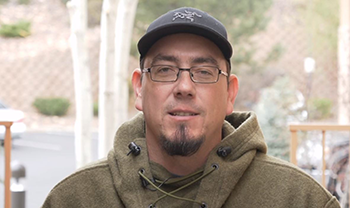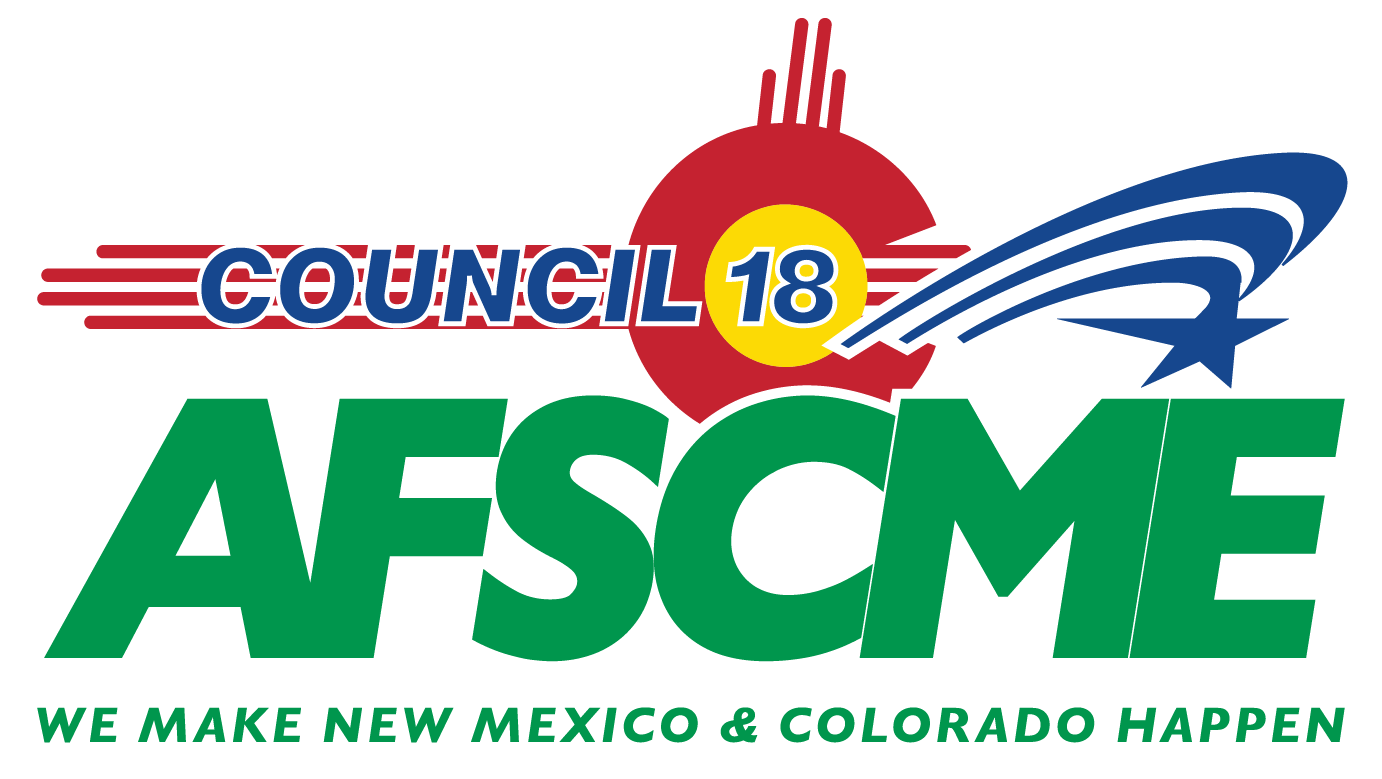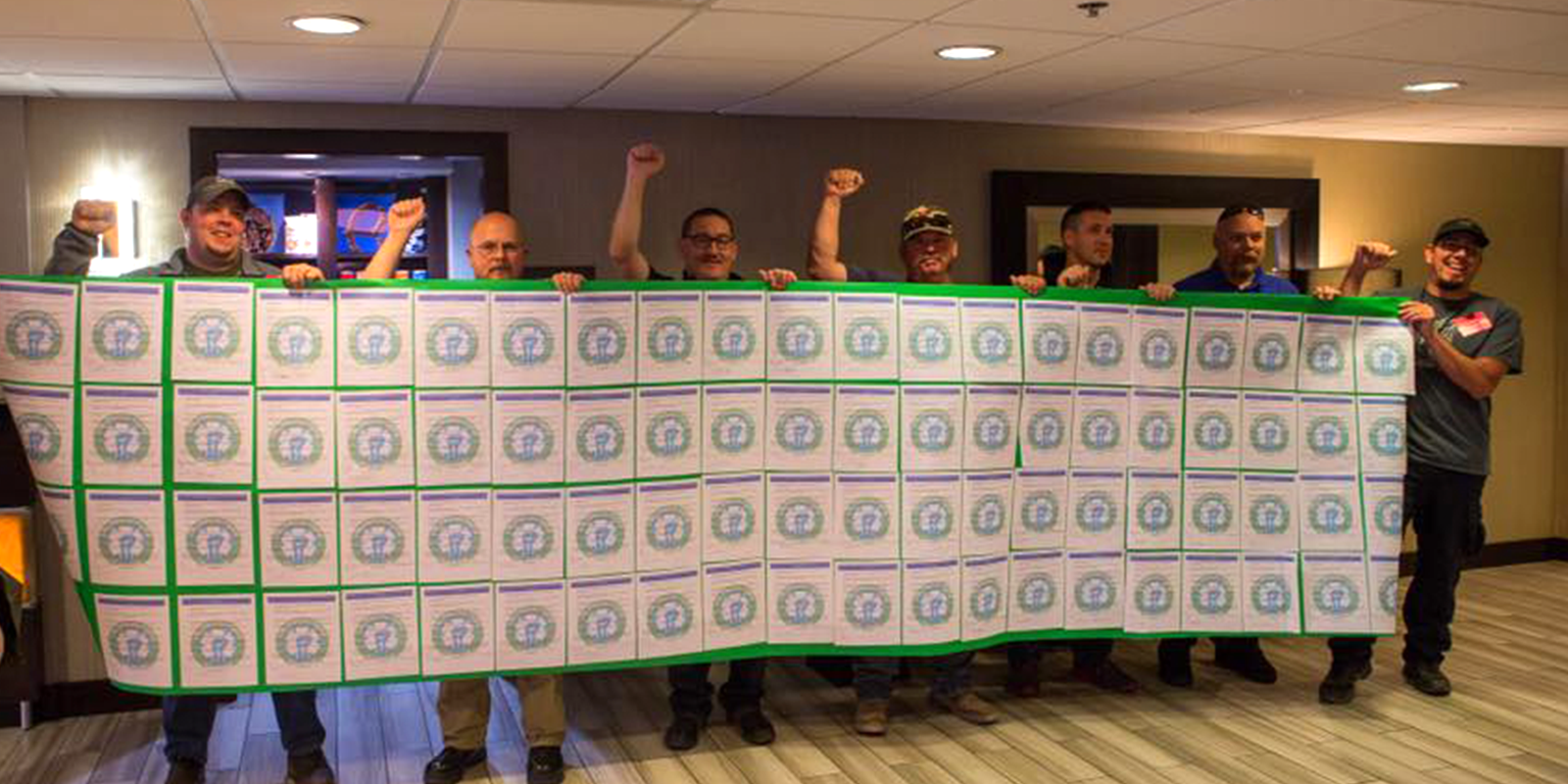
Photo Credit: Local 2960
Eight neatly arranged stacks of paper sit on a long wood table in a Starbucks in Prescott, Arizona. Several pens are placed beside the documents. The chairs at the table are empty –for now.
If that image carries a sense of weightiness, it’s for good reason. The documents were the first contract of the newly formed Prescott unit of EMS Workers United/AFSCME Local 2960; a contract that promises to curb many of the long-running problems plaguing the employees of Lifeline/AMR, a private ambulance operator.
The photo of the empty table was taken moments before the final contract viewing and informational session, days ahead of what would prove to be a subsequent unanimous vote in June to ratify.
Worn Down, Without a Voice
Before coming together for a voice on the job in 2017, the paramedics, EMTs and dispatchers in Prescott, Arizona, had no way to stem the tide of overreaches by their employer.
Those included overscheduling and overstressing the crew. In a busy 911 system, “trucks,” as ambulances are sometimes known, were constantly on the move, answering calls or driving to hotspots many miles across the desert in anticipation of the next swell of emergencies or transport calls. Operators were working grueling modified “Kelly shifts” – 24 hours on, 24 hours off – and pulling overtime on top of that.
What compounded the situation, according to Seth Cribb, a member of the Prescott local’s executive board, was that staffing levels had long been declining due to low wages, making those shifts even more challenging.
“We were being run into the ground,” recalls Cribb.
A paramedic who had been with the private ambulance outfit before it was sold to Lifeline/AMR, Cribb described what he calls “a trail of abuses.”
“We had no raises for a long time and then, only modest raises –nothing meaningful,” said Cribb.
Badly in need of better equipment, new ambulances were only brought in when a truck was on its last leg. Also unfair were seemingly small things, like how arbitrarily employees were reprimanded, or even fired, for dress code “violations” or having tattoos.
“It just snowballs. Everyone is getting pressure from corporate,” said Cribb. “Common respect wasn’t there.”
For Cribb and others, the choice to take control and gain a voice through AFSCME had been a long time coming.
A father of seven, Cribb said he had been making a good living as a plumber years ago, but after the recession hit, he needed to make a change. A one-time EMS class hooked him.
“It really started to pull on my heart strings. I mean, taking care of people is great, but taking care of your neighbors is even better. We all take pride in running on our community,” said Cribb. “That’s why it aggravates me when you see (an EMS company) not doing enough for your community.”
The Groundwork for a Career

Pictured: Seth Cribb
Today, like so many other EMS professionals, Cribb is intent on transforming what some wrongly view as just a job into a sustainable career.
That means improving wages, securing health care benefits that are affordable for those with families, increasing paid time off and providing a fair grievance procedure. It also means providing a forum for EMS operators to talk with management about training and equipment needs. All of those conditions were outlined in Prescott Local 2960’s new contract.
“No one gets into this to be a millionaire. No one thinks they’re going to be rich,” Cribb said. “But we do want our kids taken care of. We do want to be able to pay the bills.”
In talking to AFSCME early on, Cribb admits he was skeptical of joining a union. “I was very reluctant. I’d been anti-union. But I was willing to have my beliefs challenged.”
Beneath all the obvious ways in which Prescott’s EMS operators were being mistreated, the most important was simple: not having a voice on the job and being constantly being pushed around by management without any way to fight back. That was one of the biggest reasons why Cribb’s views on joining a union changed.
“We have a voice at the table with someone fighting for us,” he said.
It’s a sentiment being felt across the EMS community. That why the134 Prescott Lifeline/AMR employees count themselves among the 4,000 AMR workers, and 25,000 EMS professionals nationwide, who’re gaining power by joining AFSCME.

